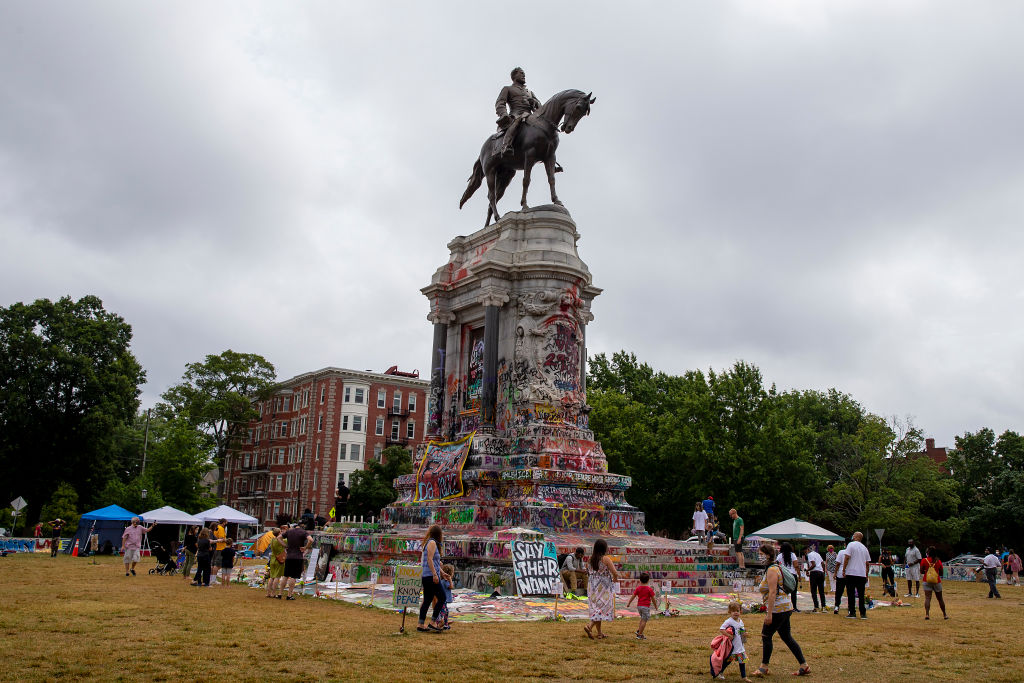The past few years have witnessed some of the most divisive public debates about American history in recent memory. Newspapers are filled with op-eds about the dangers and opportunities of reconfiguring American history around such dates as 1619 and 1776. State legislatures across the country have passed laws banning some of the most important and difficult history related to the story of race and American slavery. Parents have filled seats at school council meetings worried about the teaching of Critical Race Theory. Hundreds of monuments honoring the Confederacy have been removed from public spaces across the country.
These debates serve as a reminder that history and how we think about our collective identity as Americans remains vitally important. They also remind us of the importance of history education and, more specifically, how we as educators engage our students.
This is a critical moment to be teaching American history and the stakes couldn’t be higher. Our students need to think deeply about the meaning and significance of key moments in American history and why they remain so controversial. Students today have the opportunity to think as historians through primary source analysis, visits to historic sites, access to digital resources, and respectful conversation with their peers. Teachers have the responsibility to introduce students to a diverse range of historical actors and events and to encourage them to consider the past from multiple perspectives. Most importantly, a history classroom must leave sufficient room for students to think critically and arrive at their own conclusions based on a careful reading of sources that are reflective of their own unique identity.
This is what I believe.

I am amazed as I continue to learn about how we, as a society, have struggled long after the civil war to answer questions that cannot be comfortably kept in the proverbial pantry of bygone eras and foregone conclusions. Academic history always challenges previous narratives and in most instances it is not considered “revisionist” but normal to do so. Perhaps I was fortunate to have a keen interest in history at a very young age, to be inherently more engaged in it and not feeo so threatened by the diverse methods through which history is interpreted. As a college student I recall learninf about structural violence, and today, when hearing parents protest CRT or 1619 project, it seems like they are reacting to a concept I learned and feel much stronger from having learned it. My only other musing, here, is that I philosophically do not understand why people think teaching a difficult history, such as enslaved persons at plantation homes like Mount Vernon or Monticello, and learning of ignoble actions or conduct from the past (slavery as a whole) necessarily equates to hating an American identity. Do you ever feel deflated from people in the wider public who seem to reject history as anything other than a politically expedient narrative?
Hi Ryan. Thanks so much for the thoughtful comment. So much of what you stated resonates with me, especially your final point. Most people have no idea how academic history is produced, but than again we could also do a much better job of finding ways to shed light on the process for the public.
Nice words Kevin, but you are fifty years too late! The public school education system, in this country, has produced nothing but unlearned, self centered, pathetic, narcissistic waifs, who have been abandoned by their parents and teachers! They can’t read or write. They can’t take direction without backtalk. Most are virtually unhireable Believe me, I tried. But you know who recognized this horrible trend and exploited it? DONALD J. TRUMP! He is a genius at reading the voter landscape, and taking advantage of it. He will again, in 2024!
Once again, thanks for the comment, but it really is hard to take your comments seriously. I have 20+ years of working with students and history educators and nothing about your comment rings even remotely true for me.